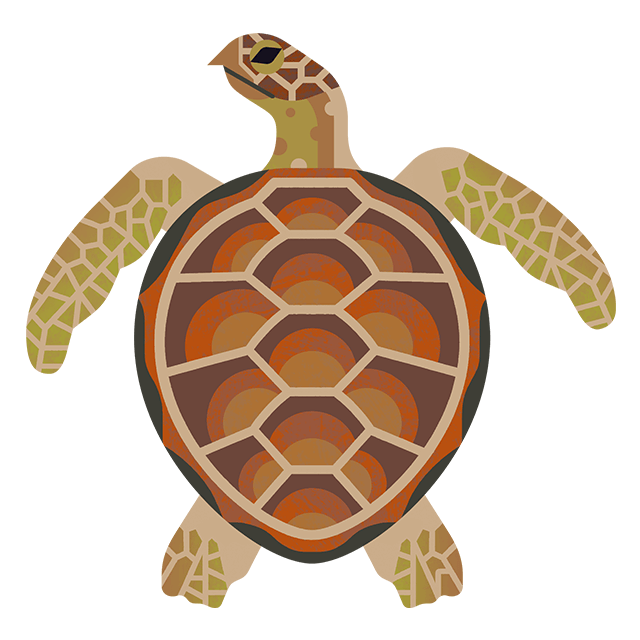
Marine turtles in UK seas
You can help in the effort to protect endangered marine sea turtles by providing information about your encounters with these spectacular creatures in UK waters.
Marine turtles in the UK
The other five species have hard shells and are less common in UK waters. Usually, these other species occur as stray juveniles carried by currents from warmer seas. They can become less active because of the colder waters and are found beached on the shore. Our Turtle Code includes a turtle ID guide and what to do if you come across a turtle on the shore.
Marine turtles are threatened
Marine turtles have been around for millions of years and play a vital role in balancing marine ecosystems, especially controlling jellyfish numbers. Over the last 200 years, human activities have had a negative effect on their survival with six out of seven species now threatened with extinction.
In UK waters, threats include:
- Accidental entanglement in fishing gear: although turtles can dive to great depths, they become stressed and drown when trapped underwater by fishing gear. Fishing gear discarded at sea may also entangle and kill turtles.
- Marine litter: especially plastic, which turtles mistake for jellyfish. Once ingested, plastic can block a turtle’s gut leading to starvation.
- Boat collisions: turtles often bask and must surface regularly to breathe, leaving them vulnerable to boat strike.
PLEASE BE VIGILANT, AND DO NOT DISCARD FISHING GEAR OR LITTER AT SEA.
Marine turtles are protected
Marine turtles are legally protected but there is no offence if turtles are caught accidentally in fishing gear. Nor is it an offence to help turtles if entangled or stranded, or to temporarily hold dead turtles for later examination by experts.
What to do if you find a sick, stranded or entangled turtle
You might come across turtles out at sea or beached on the shore. Here are some tips on what to do should you encounter one that needs help.
- At sea: Marine turtles will drown if trapped underwater, but prompt action can save them. AVOID TOWING TURTLES TO SHORE. They should be disentangled and released at sea wherever possible. Leatherback turtles should NOT be hauled aboard a boat.
- On shore: Do NOT return any hard-shelled species to the water (in the UK), they are usually young turtles who are stunned by the cold water. Wrap the turtle in a dry towel, without covering the nostrils. Report the turtle as soon as possible.
A turtle that is entangled or trapped is likely to be stressed so always approach calmly and cautiously. Large turtles deliver a serious bite and a blow from a flipper can be painful, so be careful.
For detailed information about who to contact if you find a sick, stranded or entangled turtle, download our Turtle code leaflet.
Please report all turtle encounters
All turtle sightings are important, even if they have to be discarded at sea. Records from diaries or logbooks, however old, are also of interest.
Some conservation projects place plastic or metal tags on turtles’ flippers, which display identification numbers and a return address. Record and report any tag details if this can be done without causing disturbance to the turtle.
If you have any photos to submit, please email them to info@mcsuk.org tag us on social media @mcsuk with the hashtag #TurtleSighting

This project is funded by the Government's Green Recovery Challenge Fund. The fund was developed by Defra and its Arm's-Length Bodies. It is being delivered by The National Lottery Heritage Fund in partnership with Natural England, the Environment Agency and Forestry Commission.







